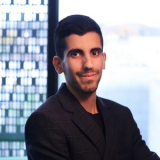Why do people break traffic rules and laws?
Toggle
Obedience to traffic laws is crucial for maintaining order and safety on our roads. But despite this, the frequency of traffic violations can greatly differ from one society to another. Have you ever wondered why this is the case?
Human behaviour is complex, and individuals' reactions to laws and penalties can be unpredictable. Therefore, no set of policies can ensure complete compliance with traffic laws. It might appear that imposing stricter penalties would effectively discourage traffic offenses, but studies indicate that such measures are not consistently effective or enduring. Even recent initiatives such as average speed enforcement and the penalty points system show mixed results.
In some cases, such initiatives have little to no impact on certain demographics, and their influence wanes over time or, in some cases, even leads to more people driving without a valid license. Thus, the evidence across many jurisdictions reveals that reliance on punishments or incentives alone does not ensure sustained compliance with traffic laws.
Measures implemented by governments, such as surveillance, penalties, incentives and infrastructure improvements, are undoubtedly essential. However, they are not the ultimate solutions since ramping up penalties has its limitations in modifying driver behaviour. There are broader societal factors that produce sustainable changes in behaviour and greater compliance with traffic laws.
Consider the simple act of stopping at a red light. It's a safety measure and also about respecting the rights of others, as well as about obeying the law. Ideally, every driver would ponder the costs and benefits before acting, thinking, "If I run this red light, I might gain a minute but risk causing an accident and disorder, disrespect to others or incurring a fine".
However, things don't always work like this. In societies where education is less accessible or misinformation is widespread, with limited access to information, drivers may make hasty, ill-considered decisions like running a red light when no police are in sight, disregarding the consequences.
On the other hand, in communities that promote education and where critical thinking is nurtured by access to free media and information, drivers are more likely to respect traffic laws. They're aware of the wider implications, such as the need to respect the rights of others, the risk of injury, or the consequences of causing an accident. Educated, critically-thinking societies tend to produce drivers who make wiser decisions, leading to safer roads for all.
The role of security
You're driving home after a fulfilling day at work. When your job, finances, and personal relationships feel stable, you're more likely to approach an orange light with caution. This sense of security fosters rationality, patience and respect for the rules of the road and the rights of others.
Conversely, think about driving when dealing with job loss, mounting bills and domestic tension. Such stresses and anxiety can lead to distraction and hasty decisions on the road, increasing the temptation to push through an orange (or even red) light, often with little regard for the law, rights of others or safety.
Communities where people enjoy a sense of security tend to have a greater capacity to manage their emotional responses and make more rational decisions. They consequently exhibit a stronger respect for and adherence to traffic laws. In contrast, individuals grappling with instability in their lives —lacking job stability, economic certainty or social support— may display more erratic and aggressive behavior, sometimes resulting in road aggression or a disregard for traffic regulations.
The power of trust
Imagine you're driving in your home town or village. The traffic lights, the speed limits, the pedestrian crossings: they're there to keep everyone safe and are not just random rules. Whether or not you follow these rules often comes down to how much you trust the people who make them. You’re more likely to stick to the speed limit and wait patiently at that red light if you believe your government and law makers have your best interests at heart.
This is the power of social trust. When there's strong trust in government, people are more likely to follow laws, including traffic laws. It is because they believe that these laws are there to benefit the public. It's not just about avoiding a ticket or a fine; it’s about being part of a community that cares and supporting the norms which govern community life.
On the other side of things, you might see more people speeding or running red lights in places where social trust is low. They might think "if the government doesn’t care about me, why should I listen to them?"
Trust, rationality, and security are critical
It's the same with public health rules—if people don’t trust the advice, they’re less likely to follow it, even if it’s for their own good. This was evident during the Covid-19 pandemic. In societies where trust in leaders, government and the state was strong, there was a higher adherence to health measures such as mask-wearing and physical distancing. Notably, there is a lot of evidence of a very significant correlation between levels of social trust and health outcomes in European jurisdictions during the pandemic.
Ultimately, the puzzle of traffic law obedience extends beyond enforcement to the fabric of society itself. Trust, rationality, and security are critical societal pillars that underpin the collective commitment to adhering to the law. Addressing these core issues can lead to a more sustained and ingrained culture of law adherence and safe driving.
Main photo: Leimanbhradain, CC BY-SA 4.0, via Wikimedia Commons
This piece originally appeared on RTÉ Brainstorm
